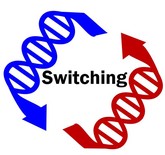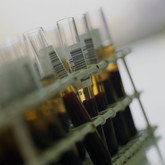Biosimilars
EC approves bevacizumab biosimilar Abevmy
On 26 April 2021, India-based biologicals specialist Biocon Biologics (Biocon) announced that its bevacizumab biosimilar, Abevmy (MYL 1402O), which it co-developed with US-based drugmaker Viatris (formerly Mylan), had received European Commission (EC) approval.
Canadian provinces expand their use of biosimilars
New Brunswick has become the third Canadian province to implement a biosimilar switching policy. The province of Alberta has also expanded its switching programme to include biosimilars of the anti-inflammatory treatment adalimumab (Humira).
Biosimilars for skin conditions safe and effective
Two recently published articles [1, 2] assessing the use of biosimilars for the long-term skin conditions psoriasis and hidradenitis suppurativa indicate that biosimilar treatments are equally as effective as the originator, demonstrating similar drug retention and clinical response rates, respectively.
Cost-savings from higher biosimilar uptake and more appropriate use of ESAs
Chronic kidney disease (CKD) is a growing public health issue worldwide. In Italy, the prevalence of CKD is 7.5% in men and 6.5% in women [1]. In Italy, the annual direct costs of management for patients on dialysis were estimated to be around €30,000 for peritoneal dialysis and €44,000 for haemodialysis [2]. Erythropoiesis-stimulating agents (ESAs) have a significant economic burden in CKD as they are widely used to treat CKD-related anaemia; biosimilars can guarantee a 20%–30% saving on ESA purchase costs in CKD patients [3].
Safety of switching between rituximab biosimilars in cancer
In more than 10 years of clinical experience, no substantial clinical and safety differences have been detected among biosimilars and their already approved biologicals [1]. However, concerns are raised with respect to the practice of switching in patients already treated with a specific biological product (either reference or biosimilar) [2].
Study supports advanced IV preparation and storage of ABP 215
The first approved bevacizumab biosimilar, ABP 215 (Mvasi), can be prepared in bag, over a month prior to being used to treat patients via intravenous (IV) infusion, shows a study published in GaBI Journal [1]. The study reveals that ABP 215 retains physicochemical stability after dilution and storage, which can ease the process of drug administration in clinical settings.
Samsung Bioepis launches Hadlima in Australia and Canada
Korea-based Samsung Bioepis (Samsung and Biogen’s joint venture) announced on 29 March 2021 that it had now launched its adalimumab biosimilar, Hadlima (SB5), in Australia and Canada.
Insurer formularies increase complexity for healthcare providers
An assessment of insurer formularies for pegfilgrastim in the US suggests that payer-imposed preferences increase complexity when pharmacists and physicians are choosing which version of a drug to stock and administer.
A positive outlook for the US biosimilars market
The US is keeping pace with the European pioneers of biosimilars approvals, reveals an article published in GaBI Journal [1].
LG Chem gains approval for adalimumab biosimilar in Japan
Japan-based LG Chem (formerly LG Life Sciences) announced on 23 March 2021 in a public filing that it had received approval from Japan’s medicines regulatory agency, the Pharmaceuticals and Medical Devices Agency (PMDA), for 20 mg, 40 mg and 80 mg syringe, and 40 mg pen formulations of its adalimumab biosimilar, Adalimumab BS MA (LBAL).













